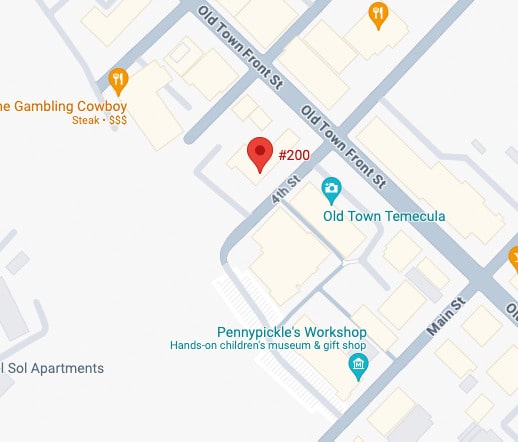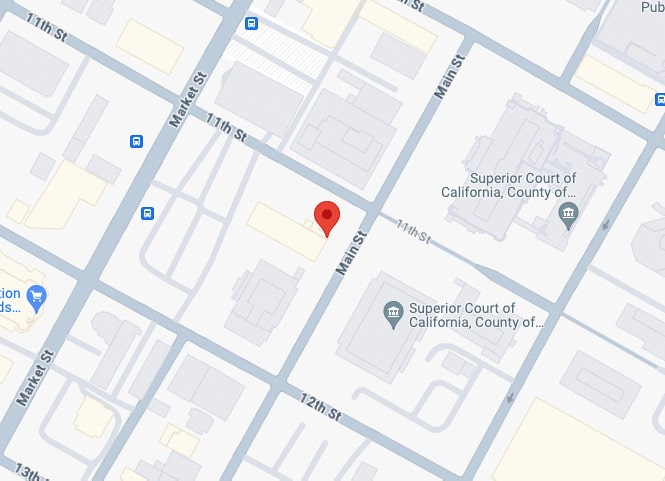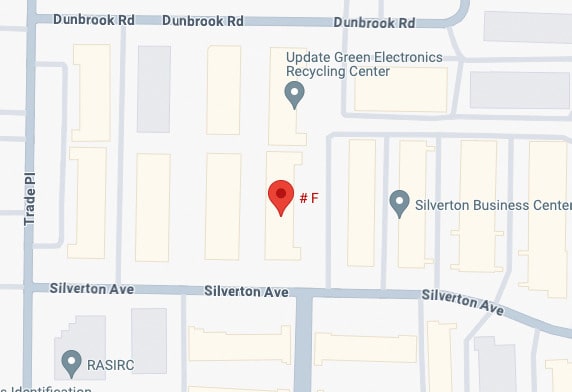California’s justice system allows people to be released on bail after arraignment. It is unconstitutional to be detained solely because you cannot afford to post bail. The courts will only deny your bail release if convinced that doing so is in the interest of public safety.
Courts impose significant bail sums, which most people cannot afford. Bail bond agents step in to post bail on behalf of the defendant to secure his/her release from jail. Thus, the defendant can resume his/her daily engagements as he/she awaits trial. If you or a loved one is arrested in Valley Center and requires assistance posting bail, contact the Justice Bail Bonds.
Understanding Bail
Courts require a specific sum from the defendant for the courts to release him/her pending trial. Bail ensures the defendant appears on future court dates. The bail value varies depending on the following factors:
- The crime you allegedly committed — The more severe the crime, the higher the bail. The bail values on felonies are higher than bail sums on misdemeanor violations. Further, the judge considers whether you are a first-time or a repeat offender.
- The county you allegedly committed the crime in — Each county has a specific bail schedule that outlines the bail value for each offense, and
- The circumstances of your case — Judges also factor in additional circumstances, including but not limited to your criminal past, history of violence, any protective orders issued against you, or whether you were on bail release and failed to appear in court on scheduled dates.
- The length of time you have lived in the community
Judges set the bail. Whereas the bail schedule outlines a specific bail sum, the value could increase or decrease based on the judge's decision. The law gives judges discretion to set bail after considering the above factors.
Bail is one of many ways you can secure your release. You can also secure your release through bail bonds and a release on your own recognizance (O.R. release).
Own Recognizance
An O.R. release allows defendants to fight criminal charges, outside custody, without a bail requirement. That means you do not have to post bail or a bond for your release. You only give the courts a promise to appear when required.
Not everyone can access an O.R. release. The judge considers several factors for him/her to release an individual on own recognizance. Some of the considerations include the following:
- You should have strong community ties — Having business interests or serving as a community leader indicates strong ties to the community.
- You should not have a criminal past.
- Your current alleged crime should be a non-violent misdemeanor or minor crime.
Bail Bonds
Bail bonds allow a third party, a bail bondsman, to post bail on the defendant’s behalf for a fee. The fee is a percentage of the bail value. Bail sums are high, and most people cannot afford to pay. You will have to reorganize your finances or post your property, like your house, as collateral to secure your release.
However, with bonds posted by a Valley Center bail bondsman, you can secure your release for a fee far less than the value of the bail.
Bail releases are conditional releases. Once you post bail and are released, you must adhere to some conditions, namely:
- Travel restrictions — The judge could order you not to leave California or require you to surrender your passport
- Issue protective orders against you
- Driving restrictions or prohibitions
- Attend a court-mandated alcohol abuse treatment program
- Submit to drug and alcohol testing
- Order to surrender your firearms to law enforcement officers
- In-person check-ins with designated agencies
- Wear a GPS or electronic monitoring device
- Fit your car with an Ignition Interlock Device (IID)
- Home detention
- Release to a partner, loved one, family, or community member with a promise that he/she will accompany you to court on scheduled dates.
Note: The above conditions, though not exhausted in the list, extend to individuals released on their own recognizance.
It bears emphasizing that the courts will refund the bail amount if the defendant honors the bail release terms and appears in court as required. Failure to which the courts will forfeit his/her bail or bond.
Valley Center Bail Bonds Process
The California bail bond process typically begins when a person is arrested and imprisoned by law enforcement. The person will then be booked and processed at a jail, during which time the courts determine their eligibility for bail. If the person is eligible for bail, they pay a bail bond company to secure their release from jail.
The Valley Center bail bond company will typically charge a non-refundable fee, typically a percentage of the total bail amount. This fee is paid in exchange for the company's promise to pay the full bail amount to the court if the defendant fails to appear for their court dates.
Once the courts receive the bond, the person can be released from jail within a few hours. He/she will then be required to appear in court on the date and time specified by the court. If the person does not appear in court, the bail bond agent will pay the full bail amount to the court.
It is important to note that the bail bond process can vary depending on the individual circumstances of each case. If you have any questions about the bail bond process in Valley Center, it is best to consult with a licensed bail bond agent or attorney.
Bail Bonds Payment Options
In general, bail bond fees are typically a percentage of the total bail amount, with the exact rate varying depending on the individual circumstances of each case.
Most bail bond companies offer various payment options to help make the bail bond process more accessible and affordable. These payment options can include cash, credit or debit cards, checks, money orders, and even some forms of collateral, such as jewelry or property.
Some bail bond companies offer financing or payment plans, allowing the defendant or their cosigner to make smaller, more manageable payments over time. These payment plans require the defendant or their cosigner to provide a down payment and agree to a schedule of regular payments until the bond is paid off in full.
Bail Bond Agreements
Bail bond agreements are legally binding contracts between a defendant, a bail bond company, and the court. The agreement outlines the terms and conditions under which the bail bond company agrees to pay the full bail amount to the court on behalf of the defendant in exchange for a non-refundable fee paid by the defendant or his/her cosigner.
Bail bond agreements typically include the defendant's name, the charges against them, the bail amount, the fee charged by the bail bond agent, and the conditions of the defendant's release. It could also include information about the defendant's cosigner, if applicable, and any collateral pledged to secure the bail bond.
Bail bond agreements are a critical document in the bail bond process, as they establish the rights and responsibilities of all parties involved. It is crucial for both the defendant and his/her cosigner to carefully review the agreement and understand its terms before signing it.
Who is a Cosigner?
A cosigner in a bail bond agreement is a person who agrees to take on legal responsibility for the defendant's bail bond. The cosigner typically agrees to pay the bond dealer the full bail amount if the defendant fails to appear in court as required by the terms of the agreement.
The cosigner is typically a friend or family member of the defendant who is willing and able to take on this financial responsibility. Sometimes, the cosigner could be required to provide collateral, like jewelry or property, to secure the bond.
The cosigner plays a critical role in the bail bond process, as they are responsible for ensuring that the defendant appears in court as required and for paying the bond dealer if the defendant fails to do so. It is best for the cosigner to carefully review the bail bond agreement and understand his/her obligations before agreeing to cosign for the defendant.
What Happens if I Attend All My Court Appearances After Being Released on Bond?
If you are released on bail and show up to all your scheduled court appearances, you will comply with the terms of your bail bond agreement. This means that the Valley Center bail bond company will not be required to pay the full bail amount to the court, and you will not be subject to any additional legal penalties.
In most cases, if you are released on bail and appear in court as required, your case will proceed through the criminal justice system according to the normal legal process. This could involve additional court appearances, plea negotiations, and possibly a trial.
Once your case is resolved through a plea agreement or a trial, the court will typically release any remaining bail funds to you or your cosigner, minus any fees or fines you owe.
The specific legal process can vary depending on the individual circumstances of each case.
Bail Bond Forfeiture
Bail bond forfeiture occurs when a defendant fails to appear in court as required by the terms of their bail bond. This can happen for various reasons, including if the defendant misses their court date, fails to comply with the conditions of their release, or is arrested on new charges.
When a bail bond is forfeited, the court will typically issue a warrant for the defendant's arrest and require the Valley Center bail bond company to pay the full bail amount to the court. The court could also impose additional fines and penalties on the defendant.
If the bond dealer cannot pay the full bail amount to the court, the court could seek to recover the money from the defendant or his/her cosigner. The defendant could also be subject to additional legal penalties, including extra jail time if the courts find he/she deliberately failed to appear.
Specific consequences of bail bond forfeiture also vary depending on the individual circumstances of each case.
What Happens to The Sum You Posted as Bail Once the Case is Over
Once a criminal case is over, the court will typically release any remaining bail funds to the defendant or his/her cosigner, minus any fees or fines that could be owed. The specific process for releasing bail funds varies depending on the individual circumstances of each case.
In some cases, the court releases the remaining bail funds to the defendant or his/her cosigner immediately after the resolution of the case. In other situations, courts hold onto the funds for some time to allow for any appeals or further legal proceedings.
Courts could also use some or all of the bail funds to pay for any fines, fees, or other legal costs associated with the case. In addition, if the defendant failed to appear in court as required by the terms of their bail bond agreement, the Valley Center bail bond company could be entitled to keep some or all of the bail funds as compensation for their financial risk.
Advantages of Using Bail Bonds
There are several advantages to using bail bonds in California.
For starters, bail bonds allow defendants to secure their release from jail quickly and easily. In most cases, a bail bond company can help a defendant secure their release from custody within a few hours of being arrested, which can be much faster than waiting for the court to set a bail amount and for the defendant to come up with the money on their own.
Bail bonds can be more affordable than paying the full bail amount in cash. Most bail bond companies charge a non-refundable fee, typically a percentage of the total bail amount. This fee can be much less than the full bail amount, making it more affordable for defendants to secure their release from jail.
Bail bonds also provide defendants with more flexibility and freedom. Courts typically hold the money when you pay your bail in cash until the case is resolved. This can limit your ability to access your money. With a bail bond, you can be released from jail and regain control of your assets, allowing you to take care of your basic needs and meet your obligations while out on bail.
You can avoid additional legal penalties with bail bonds. If a defendant fails to appear in court as required by the terms of their bail bond, the bond dealer will be required to pay the full bail amount to the court. This can help the defendant avoid additional legal penalties, like further jail time, resulting from failure to appear in court.
Using bail bonds can provide you with a faster, more affordable, and more flexible way to secure your release from jail and avoid additional legal penalties.
Choosing the Right Bail Bondsman
When choosing a bond dealer, it is crucial to consider several factors to ensure that you work with a reputable and reliable professional. Some of the necessary factors to consider when choosing a bond dealer include the following:
-
License and Experience
Make sure that the bail bondsman you are considering is licensed to operate in California and has experience in the bail bond industry. You can check with the licensing authority to verify the bond dealer's license and see if they have any disciplinary actions or complaints against them.
-
Reputation
Ask for references from past clients or check online reviews to get an idea of the bail bondsman's reputation in the community. You can also contact your local bar association or the Better Business Bureau to see if the bail bond agent has any unresolved complaints or issues.
-
Fees and Payment Options
Ask about the bail bondsman's fees and payment options to ensure they are fair and reasonable. Be sure to ask if the bail bondsman offers financing or payment plans and whether they require collateral to secure the bail bond.
-
Availability and Accessibility
Choose a bail bondsman who is available and accessible when you need them. Bail bond situations can be urgent and stressful, so it is in your best interest to work with a bail bondsman who is responsive and can provide the support and assistance you need.
Overall, the right bail bondsman for you will be licensed, experienced, reputable, and accessible and one who will offer fair and reasonable fees and payment options.
Jail and Court Information
Jail Information
San Diego County Sheriff's Department
Courthouse Information
Valley Center Courthouse
Contact a Valley Center Bail Bondsman Near Me
You do not have to remain in custody because you cannot afford to post bail. Reach out to the Justice Bail Bonds team for assistance if you are arrested in Valley Center. We are available 24/7. Contact us at 951-445-4155 for more information.









